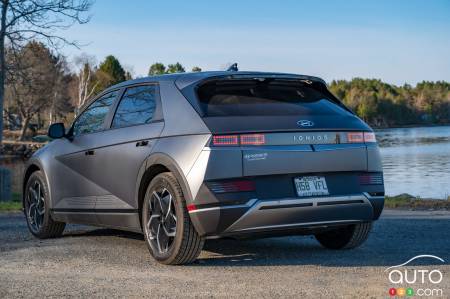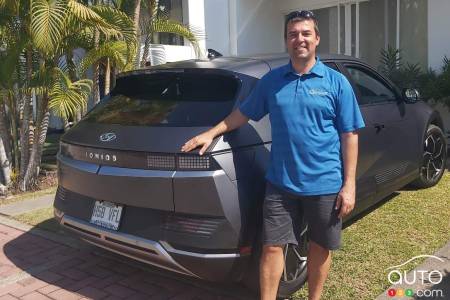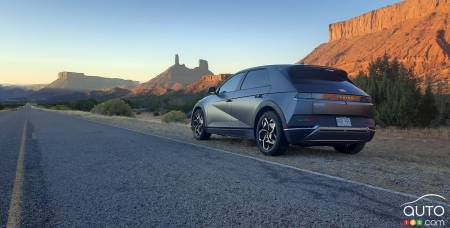
• It’s Earth Day, time for us at Auto123 to mark the occasion with a neat story of a Canadian, his EV and a monster road trip.
• Quebecer Patrick Nadeau undertook a 15,700-km road trip aboard his all-electric Hyundai Ioniq 5. Here’s how that went.
When it comes to electric vehicles, range anxiety remains a top affliction. That disease is less rampant and virulent than it was a few years ago – EVs deliver better range, and motorists are getting used to dealing with EVs and their requirements. But there's still work to be done to convince folks that there's really nothing to worry about if you plan your trips well.
That's what Quebecer Patrick Nadeau did when he left home in Disraeli, Quebec, a couple of hours and change east of Montreal, and drove his Hyundai Ioniq 5 to Puerto Vallarta, on the far side of Mexico.
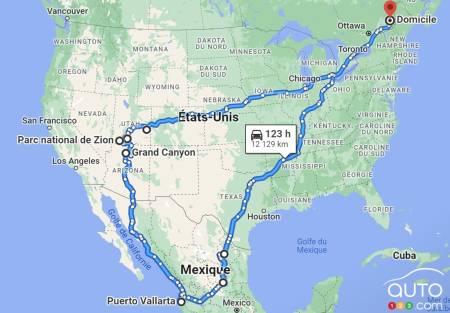
We're talking about a 15,700 km round trip in an all-electric vehicle.
His Preferred long-range Ioniq 5 has a range of 488 km. And we’re sure you’re curious how much that all cost. Well, not much: Only $630 CAD. Just a fraction of what a gasoline-powered car would have cost to cover close to 16,000 km. That’s a year’s worth of driving for the average motorist…
On the other hand, this kind of trip required careful planning and strategic pit stops. Nadeau explained that was easier in the U.S. with its more-developed infrastructure for EVs. In Mexico, the challenge was greater. Nonetheless, he was able to get where he needed to go with good route planning.
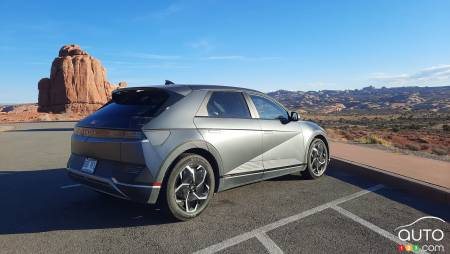
Nadeau’s solo journey lasted 116 days and included a small detour through the Midwest to visit Zion Park and the Grand Canyon, among other spots.
And this was no glamping trip. Nadeau slept in his car, and on cooler nights, he set the climate control to 20 degrees. Lest you think that might drain the EV’s battery pack, Nadeau says it was only taking out 10 percent of the battery's reserves over the course of a night.
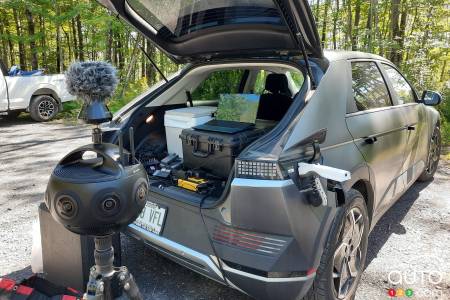
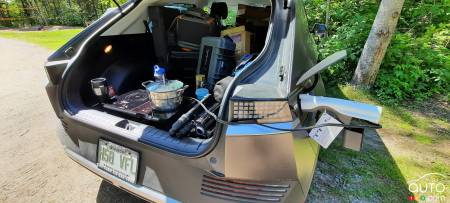
He was also able to use the V2L (Vehicle-to-Load) feature, which allows for running small appliances and other electric equipment via a connector plugged into the Ioniq 5’s charging port. “It allowed me to work and recharge the batteries of my equipment in national parks, where campgrounds are often without service.”
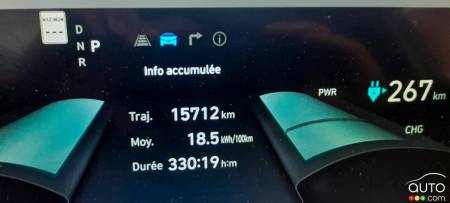
Overall, the vehicle's energy consumption averaged 18.5 kWh/100 km over the entirety of the trip.
